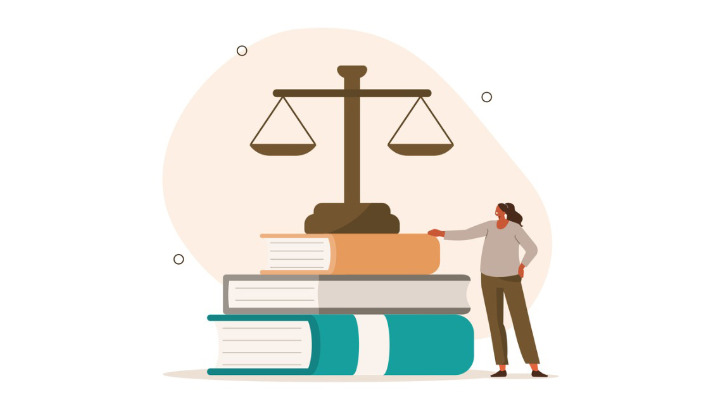Solstice East Lawsuit: Key Details and Insights

Solstice East is a Lawsuit boarding school located in North Carolina, specializing in treating teenage girls with emotional issues. However, the facility has recently come under scrutiny due to a lawsuit filed against it by several former students and their families. The lawsuit alleges physical abuse, neglect, and fraudulent marketing practices at the hands of staff members at Solstice East.
In this section, we will provide an overview of the key details surrounding the Solstice East lawsuit, including when it was filed, who is involved in the case, and what specific allegations have been made against the facility. This will give readers a better understanding of the context and background of this controversial legal battle.
Background and History of Solstice East
Solstice East is a residential treatment center located in Asheville, North Carolina that offers long-term therapy programs for troubled teenage girls. Founded in 2007 by Kristin Wilson and Anne Russell, Solstice East was initially known as Trails Carolina before it was rebranded to its current name in 2011. The facility aims to provide holistic healing and growth for adolescents struggling with emotional and behavioral issues such as depression, anxiety, trauma, substance abuse, self-harm, and family conflicts.
The program at Solstice East combines evidence-based therapeutic approaches with experiential activities like equine therapy, yoga, art therapy, wilderness adventures, and academic support. This unique combination of traditional therapy and outdoor experiences is believed to foster personal growth and encourage positive change among the participants.
The lawsuit sparked public interest as it raised questions about how residential treatment centers operate and whether or not they are adequately regulated. It also brought attention to concerns surrounding teen mental health facilities, such as staff training procedures, supervision policies for outdoor activities, hikes, and wilderness outings along with protocols for responding to medical emergencies.
Allegations and Key Details of the Lawsuit
The allegations and key details of the Solstice East lawsuit have sparked a lot of controversy and speculation surrounding the residential treatment center for adolescent girls. In this section, we will delve into the specific allegations made against Solstice East and outline the key details of the lawsuit.
The Lawsuit was filed in February 2020 by former residents of Solstice East, claiming that they were subjected to emotional abuse, mistreatment, and violations of their civil rights during their time at the facility. The plaintiffs allege that they were coerced into participating in physical restraints, secluded from others as punishment, and deprived of basic necessities such as food, water, and sleep.
There are also allegations regarding medical neglect at the facility. Some former residents claim that their mental health needs were not properly addressed or treated while at Solstice East. They also report being denied access to necessary medications and accommodations for pre-existing conditions.
The allegations and key details of the Solstice East lawsuit are quite serious and have raised valid concerns about the safety and effectiveness of residential treatment programs for troubled teens. As we continue to explore this lawsuit, it’s crucial to keep in mind that every individual involved deserves a fair and thorough investigation into their experiences.
Response from Solstice East
After the recent lawsuit filed against Solstice East by a former student and her family, the school has issued a response addressing the allegations made in the case. In this section, we will explore Solstice East’s public statement and break down its key details and insights.
The statement goes on to address some specific allegations made in the lawsuit. Regarding the claim of physical abuse by staff members towards students, Solstice East denies any such incidents taking place. They state that their team is highly trained in therapeutic techniques and is dedicated to using non-violent methods of communication and intervention.
The school also addresses claims surrounding inadequate educational support for struggling students. They emphasize their commitment to providing individualized academic plans for each student’s unique needs and challenges. Additionally, they state that all educational programs at Solstice East are accredited and meet state education requirements.
While acknowledging the serious nature of the allegations made in the lawsuit, Solstice East maintains its stance on denying these claims. They assure parents/guardians considering enrolling their child at Solstice East that the school is committed to providing a safe and therapeutic environment for all students. They also express their willingness to cooperate with any legal proceedings and investigations into the matter.
Insights and Analysis of the Case
The Solstice East lawsuit has garnered a lot of attention and raised questions about the regulations and standards for therapeutic schools. The case revolves around allegations of abuse, neglect, and malpractice against staff members at Solstice East, a residential treatment facility for troubled teenage girls.
It is also worth noting that there have been other lawsuits filed against Solstice East in the past. In 2016, a claim was settled for $7.5 million after a student alleged she was sexually assaulted by a therapist while enrolled at the facility. This raises concerns about possible systemic issues within the organization.
While litigation is still ongoing with no clear outcome yet as we write this post (January 2022), it is evident that this case has brought to light important questions about the regulation and monitoring of therapeutic schools. It also serves as a reminder of the vulnerable position that parents and teens may find themselves in when looking for help with mental health struggles.
As we await further developments, it is crucial for us to continue advocating for proper oversight and accountability in these types of facilities. The Solstice East lawsuit has sparked discussions and raised awareness, but there is still much work to be done in ensuring the safety and well-being of young people seeking support for their mental health.
Impact on Students and their Families
The recent lawsuit filed against Solstice East, a residential treatment center for adolescent girls, has caused ripple effects not just within the facility itself, but also on its students and their families. This legal action has raised concerns about the safety and well-being of the vulnerable population under Solstice East’s care, leaving many parents and loved ones feeling betrayed and questioning the quality of treatment provided.
One of the most significant impacts of this lawsuit is on the students who have resided at Solstice East. Many teenagers are already struggling with mental health issues such as trauma, depression, and anxiety when they enter these types of facilities. Being in an environment that claims to offer therapeutic support and healing only to discover that it may have caused harm can be devastating for these young individuals.
For those who were at Solstice East during the reported incidents, there may be lingering feelings of fear or mistrust towards authority figures. The emotional toll is intensified when considering that some of these students may have opened up about their traumas or shared sensitive information during therapy sessions. Learning that they were potentially manipulated or abused by those they should have trusted can further exacerbate their symptoms and hinder their progress towards recovery.
Some parents may also feel a sense of betrayal towards Solstice East management for not fulfilling their promises to provide safe and effective treatment for their children. The realization that they paid thousands of dollars only to put their child’s well-being at risk can cause financial strains on top of emotional distress.
Similar Cases in the Troubled Teen Industry
The troubled teen industry has been under scrutiny for several years now, with reports of abuse and neglect coming to light in different facilities across the country. Solstice East, a therapeutic boarding school for girls located in North Carolina, is one such facility that has been facing legal action due to allegations of mistreatment towards students.
One notable case is that of Elan School in Maine, which operated from 1970 to 2011. The school was known for its harsh disciplinary methods, including physical punishment and confinement in isolation rooms. Students who attended Elan have shared stories of emotional and physical abuse by staff members as a form of therapy. Similar to Solstice East, Elan also faced multiple lawsuits for negligence and maltreatment towards students.
Another case that gained national attention was that of Tranquility Bay Facility in Jamaica, which was shut down after numerous reports of maltreatment by both staff members and fellow students. Many former residents have shared stories of verbal abuse, forced exercises (such as carrying heavy rocks on their backs), and manipulation tactics used by staff members.
Moreover, CEDU Academy (originally called Coronado School) was another therapeutic boarding school that faced numerous lawsuits over the years for mistreating students. Similar to Solstice East’s “emotional growth program,” CEDU implemented its version called the “basic human needs program.” However, it involved severe forms of discipline such as sleep deprivation and withholding meals from students who did not comply with rules.
While Solstice East’s lawsuit has brought attention to the mistreatment faced by students in therapeutic boarding schools, it is essential to acknowledge that such cases are not unique. The Troubled Teen Industry has a history of controversial practices that have caused immense harm to vulnerable adolescents, highlighting the urgent need for reform in this industry.
Conclusion
The Solstice East Lawsuit has shed light on important issues within the troubled teen industry, and there are valuable lessons to be learned from this case. It is crucial for parents and guardians to thoroughly research programs before enrolling their child, as well as closely monitor their child’s experiences while in treatment.
Moving forward, the Solstice East Lawsuit has brought attention to the lack of federal oversight in the troubled teen industry. Currently, most states do not regulate these facilities as they would other therapeutic or educational programs. This means that there is no standardized licensing process or monitoring of practices within these facilities.
Although the details of the Solstice East Lawsuit are distressing, it serves as a reminder to be vigilant in researching and monitoring residential treatment programs. It is crucial to prioritize the safety and well-being of our children and work towards improving the troubled teen industry as a whole.




